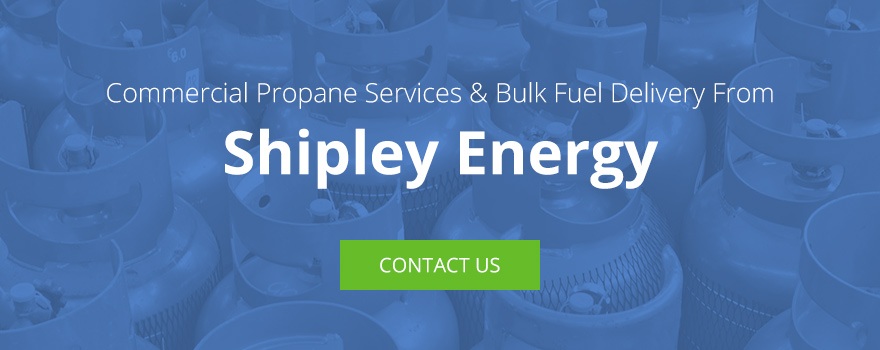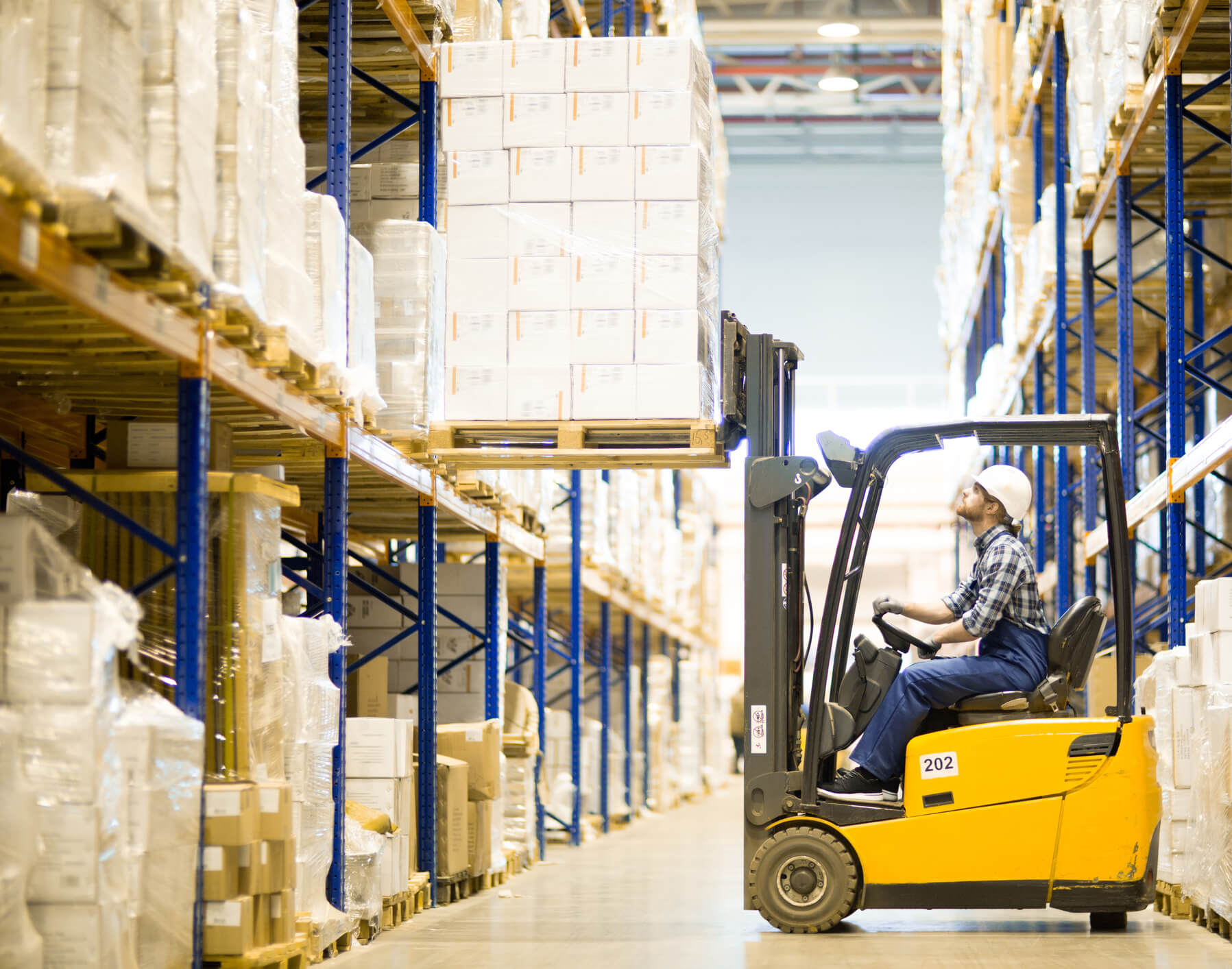
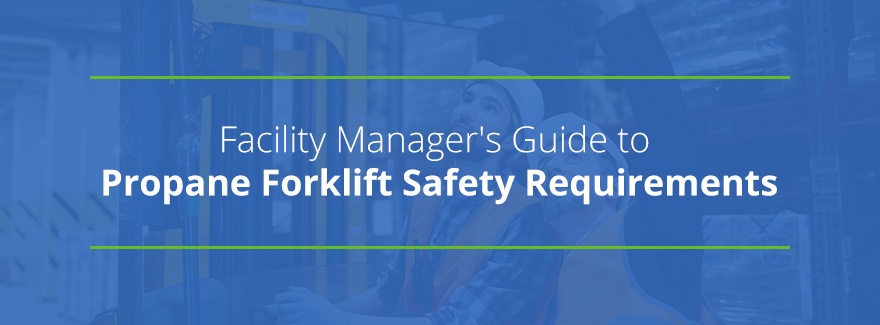
Throughout the United States, more factories and worksite crews are switching from gas to propane as a power source for forklifts. This article goes over the advantages of propane forklifts and also covers the federal propane forklift regulations and operator safety requirements.
The benefits of using propane in a forklift include efficiency, productivity, savings, reduced emissions and improved safety. Propane compares favorably to gas, diesel and electric power on the following fronts:
One of the biggest advantages of propane fuel is the small amount of time that it takes to refuel a forklift and put the machine back to use. The time it takes to refuel a forklift with natural gas, by contrast, is considerably longer. For an electrical forklift, it can take up to eight hours to get the machine fully recharged. When you consider just how much productivity could be gained or lost in eight hours, the difference is tremendous.
In fact, filling propane forklifts requires just five minutes on average, meaning less downtime and more time maximizing the output rate of your work site. These forklifts are also better at taking on heavier loads. Paired with the convenience of more uptime, this advantage means your ability to take on more complex work is increased.
While energy costs can differ by as little as a few cents per fuel-up or charge, less frequent fill-ups make propane-powered forklifts highly cost-efficient. As you operate your fleet, the savings add up. The money you save using propane lowers your operating expenses and gives you more room in your budget for other needs.
In the event you forget to recharge your electric forklifts, your business’s output is severely affected. Any operations that rely on your forklift fleet halt for hours, decreasing productivity and impacting your business. Reduce the risk and rely on a more reliable fuel by switching to propane to power your business’s forklifts.
Propane is the most cost-effective fueling option for forklifts because of the power potential and engine life expectancy. With propane, a forklift can run at 100% power nonstop during a work shift. In terms of productivity, propane provides enormous potential for users of forklifts, especially during outdoor jobs where there are no limits to the speed-level of forklift operations.
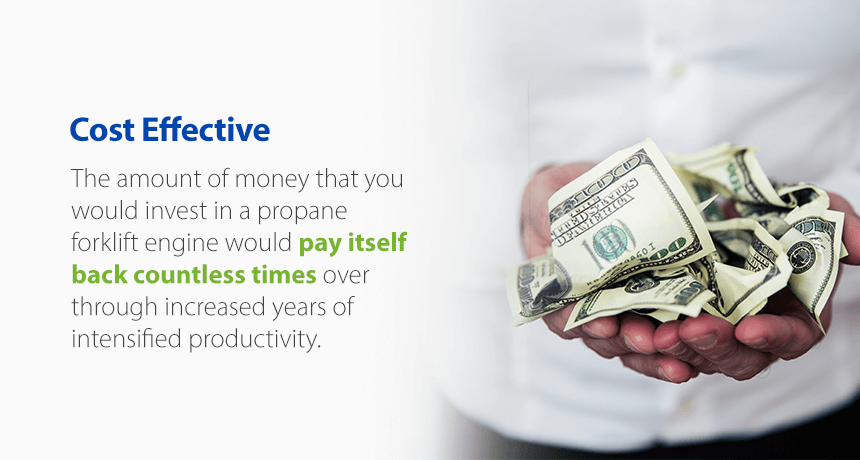
Propane engines generally last longer than competing types. Gas engines, by comparison, typically last only half as long. Therefore, the amount of money that you would invest in a propane forklift engine would pay itself back countless times over through increased years of intensified productivity.
Forklifts equipped with propane tanks have safety shut-off mechanisms that activate the instant an accident is detected. All the parts of a forklift that handle propane — such as the fuel pipes, carburetion parts and the tank itself — are required by law to meet official U.S. safety standards.
Handlers exchange propane cylinders with maximum safety. When you use a service like Shipley Energy, you never need to dispense with propane in a landfill. Once a fuel cylinder has fulfilled its purposes, it is reclaimed by the supplier and given a full inspection for quality. If a cylinder appears damaged, it is removed from circulation.
Compared to gas or diesel, propane burns much cleaner. As such, facilities that rely on propane emit fewer greenhouse gases such as hydrocarbon, nitrogen oxide and carbon monoxide. When maintained with care, a forklift powered by propane will have significantly lower emissions because the propane is stored in a spill-proof, pressure-tight cylinder. Thanks to the environmental advantages of propane, companies that opt for this fuel often qualify for tax credits.
Propane is also less likely to contaminate the surrounding area than other fuels. When spilled propane is exposed to air, the substance evaporates instead of mixing with the soil. This behavior qualifies propane as an eligible fuel for the 1990 Clean Air Act overseen by the Environmental Protection Agency (EPA).
Propane is a clean-burning fuel that is naturally colorless and odorless. For safety reasons, propane manufacturers add chemicals to the fuel to give it a distinct smell, helping consumers identify when a leakage has occurred. These measures give you the tools to safely catch and mitigate spills in the event of a mishap.
You can also count on propane having virtually no waste, with all the fuel kept in the tank. This tightly controlled container is engineered to give you the exact amount of propane you need for smooth operation.
Propane is a boon to the American economy because most of the supply is produced domestically. Since 2010, production has multiplied to the point where the U.S. now exports roughly one million barrels of propane per day.
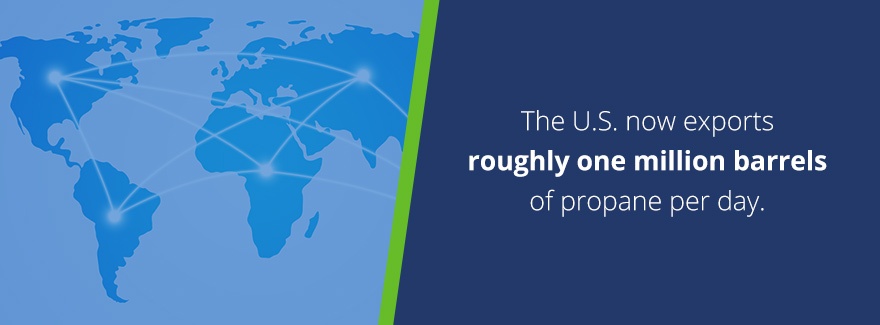
Due to the secure, compact design of the containment cylinders, propane is one of the most portable fuel types. When it comes to storage options, propane is also the most flexible type of fuel. You can store propane cylinders in virtually any location on your business or factory premises, providing the storage area is free of ignition elements.
According to the guidelines under part number 1910 of the Occupational Safety and Health Standards (OSHA) by the U.S. Department of Labor, the following rules apply to fork trucks:
For a warehouse or construction-site worker to operate a forklift, the individual must be properly trained for the tasks at hand. According to the requirements in 1910.178(l)(2)(iii), OSHA defines this as “knowledge, training, and experience.” Therefore, anyone who operates a forklift must have a verified skill-set for the functions of the vehicle and be licensed to operate one.
In addition to OSHA propane forklift regulations, many guidelines should always be followed during the loading, operation and unloading of a forklift. To ensure maximum safety at your facility, make sure that all applicable personnel on your staff are trained in the following propane forklift safety requirements:
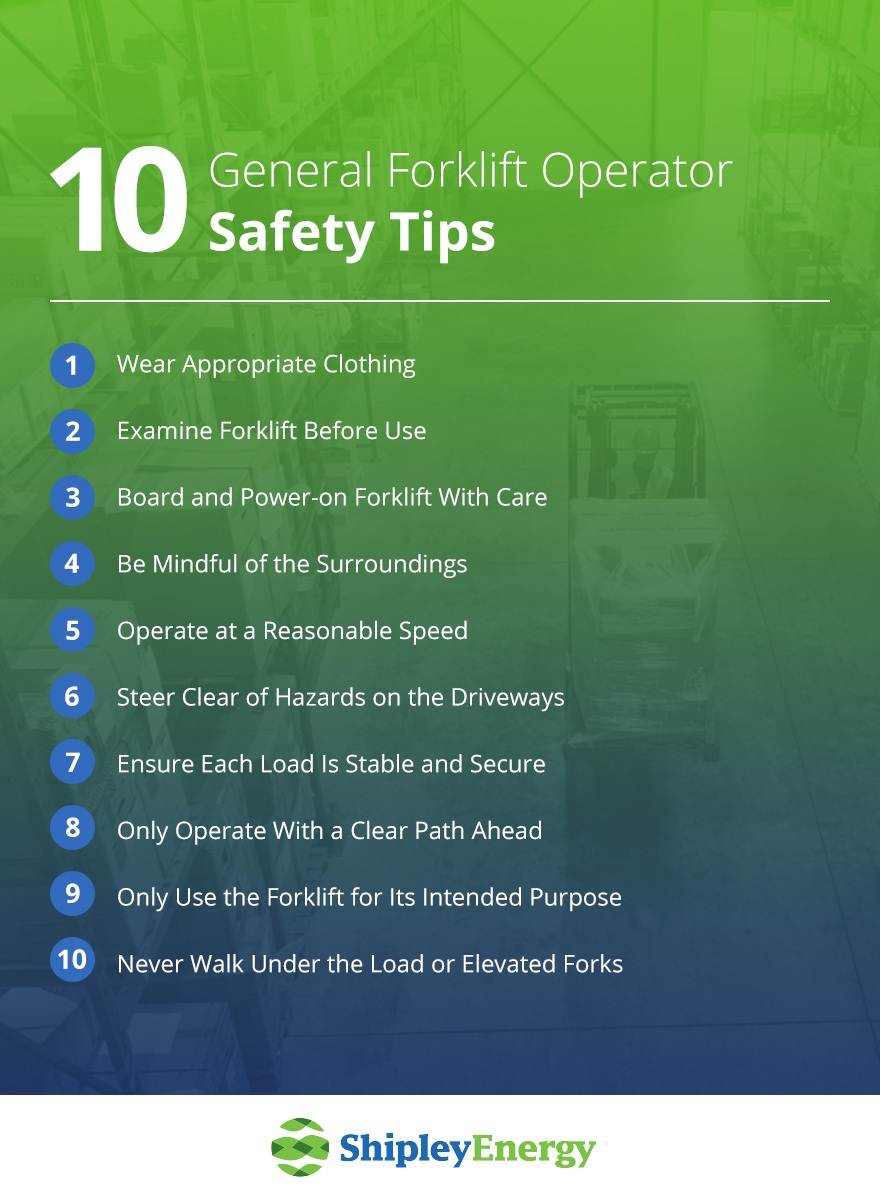
For maximum safety, forklift operators must be dressed appropriately for the job at all times. The required outfit for forklift operation consists of a protective hat, safety shoes and fitted, visible clothing. Any clothes that are either loose or non-visible could put the operator and other workers at risk. It is also crucial for a forklift to be operated with clean, dry hands, as greasy hands could cause the operator to lose control of the functions and cause an accident.
Each day before an operator boards a forklift, the vehicle should be inspected for any possible defects. The parts of the forklift that should be given this daily once-over include the brakes, tires, controls, steering, mast and warning lights. If any problems are detected, the issue should immediately be reported to management and the forklift should not be operated until a review of the vehicle is conducted by higher-ups.
It is also important to consider the practicality of a given journey with a forklift. A particular load might be well-positioned for the pickup, but the arrangement might not make as much sense once it is stacked at the receiving end.
Each safety feature of the forklift must be used while the vehicle is in operation, as well as during those moments when it is being mounted. This includes the steps and handles that are put in place for boarding. Once inside the forklift, an operator should make seating adjustments to ensure that the controls are within proper reach. The mirrors should also be adjusted to account for these changes.
Before starting the forklift, an operator must fasten the seatbelt and keep all extremities within the confines of the vehicle before putting things into operation.
While you operate a forklift, you must adhere to any safety guidelines and worksite rules that have been laid out by your company. All driving must be confined to the designated forklift paths. For maximum safety, consider the factors of the environment and keep the following tips in mind:
Even though the surroundings are different, forklift operation requires just as much safety and caution as the operation of a commercial or passenger vehicle.
When it comes to operating speed, there are several safety protocols to follow while driving a forklift:
A forklift needs time to slow down without compromising the stability of a load.
There could be various potential hazards along a given roadway that might impede your delivery or jeopardize your safety while operating a forklift. Keep the following tips in mind when you encounter these situations:
Even though there won’t be any traffic cops waiting to pull you over and fine you for speeding, you must think of forklift roadways as speed-regulated.
To ensure that all loads are carefully delivered, carry out the following steps before embarking on the route:
The overall goal is to deliver each load free of damage or defects.
If the environment is fog-laden or the view ahead is somehow obstructed, do not proceed forward with the forklift. Alternately, seek the help of a pedestrian guide for viewing assistance.
Remember, forklifts are only built for one purpose — carrying loads. No forklift should be boarded by a second person unless there is a second seat present with the required safety features.
Never allow anyone to walk under a load of a raised forklift. If the load were to fall, the injuries could be serious, if not fatal.
At the end of a day’s work when you need to retire the forklift for a day, do the following:
It really is that simple. Remember, a forklift motor should never be left idling, especially when unintended.
Propane cylinders are pressure-tight and incredibly secure. That said, propane must be handled with care. Make sure that every operator tasked with propane handling has reviewed the following tips:
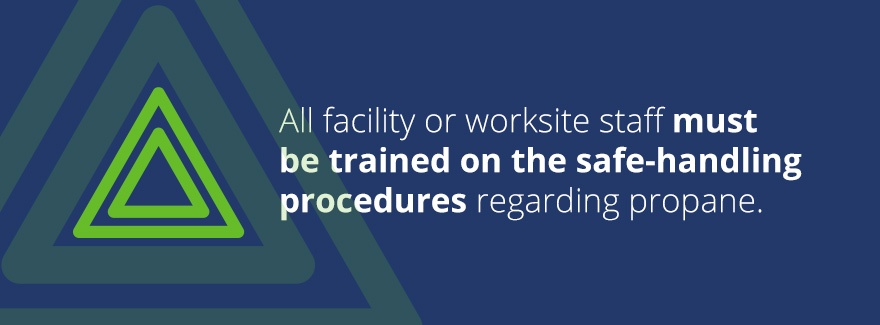
Direct physical contact with propane must be avoided at all costs. Propane can cause freeze burns on human skin.
At Shipley Energy, we provide propane to businesses that use forklifts for all types of operations. Out streamlined ordering and refill process makes it easy for you to ensure you have the fuel you need. Contact us today for more information about commercial propane services.
